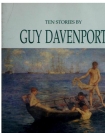The Autobiography of Ma-Ka-Tai-Me-She-Kia-Kiak, or Black Hawk - Black Hawk (howl and other poems TXT) 📗

- Author: Black Hawk
Book online «The Autobiography of Ma-Ka-Tai-Me-She-Kia-Kiak, or Black Hawk - Black Hawk (howl and other poems TXT) 📗». Author Black Hawk
On the least exposed side of the Fort was a work bench; over this the Major threw the bridle rein of his horse, and most of the horses huddled around this as if conscious of their danger. The Indians swarmed around the Block House under cover; an ominous stillness pervaded the air, which was soon broken by the crack of the rifles of the white men. The best marksmen with the best guns were stationed at the port holes, and a lively fire was kept up by the little garrison. The Indians finding that they were making no impression, turned their attention to shooting the horses, twenty-five of which they succeeded in killing. After sharp firing for two hours they retreated, leaving nine of their men dead on the field. This was the first engagement in this war, in which the whites had held their position until reinforcements arrived, without retreating. If the main force had remained in the grove at this Block House after the volunteers went out, without making any demonstration when the Indians came charging up and still in the open prairie, they could have been easily repulsed. This was the Major’s plan of action, but the men became excited by the firing, and having no commissioned officers to guide them, started without order to assist their exposed comrades in the open prairie, when they were flying for their lives to the block house.
That evening Gen. Posey came up with his brigade, and although the Indians were encamped a short distance away, he made no effort to attack them but contented himself with reporting the situation to Col. Z. Taylor at Dixon’s Ferry. Gen. Whiteside had said to Major Dement before crossing Rock river, that he was going into the Indian rendezvous, where he could have an Indian for breakfast every morning, and he found it literally true.
It seems strange that Major Dement should have been ordered by Col. Taylor into the enemy’s country, across Rock river, with so small a force of volunteers, while a large force of Regulars and Volunteers, commanded by regular United States officers, remained securely entrenched in the rear. It was Major Dement’s opinion that there were more fighting men of Black Hawk’s band of warriors in the engagement at Kellogg’s Grove than ever afterwards made a stand during the war. It was easy for Gen. Posey to have moved up and attacked the Indians on his arrival at the Grove, and then have dealt them a fatal blow by forcing them to battle then, but he refused to do so, and the war was not terminated until the fight at Bad Axe some two months later, in which the Illinois troops did not engage. During this engagement at the Block House, four whites and eleven Indians were killed. The whites lost a large part of their horses—the Indians shooting them from the timber, while the poor animals were huddled about the Block House.
Although in command, Black Hawk remained in the Grove doing the engagement, looking on to see that his principal aid, whose voice was like a trumpet call, carried out his orders.
While reciting the incidents of this battle to the author, when writing his autobiography, Black Hawk spoke in high praise of Major Dement as a commander, who had shown not only good military skill in coming to the rescue of his party, but in withdrawing his little party to the Fort.
After Dement’s engagement General Posey’s brigade started for Fort Hamilton and remained there a short time. News of Dement’s engagement and march of Posey’s brigade having been received at Dixon’s Ferry, where the two





Comments (0)